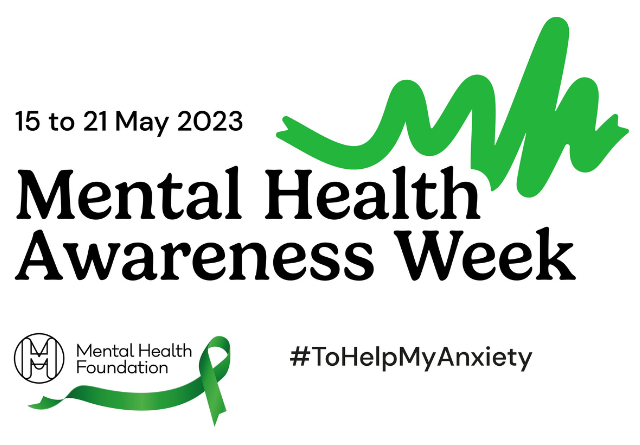Mental Health Awareness Week 2023 - ‘Just’ anxiety?
Date: 18 May 2023

With the theme for Mental Health Awareness Week 2023 being anxiety, it’s a good opportunity for us to better understand anxiety and how to support ourselves and others.
Anxiety is a common emotion that we’ve likely all experienced at some point in our lives. People living with an anxiety disorder will feel intense levels of anxiety frequently, which can deeply impact their quality of life.
Anxiety disorders affect over 8 million people in the UK – that’s a little over 1 in 10 of us – and there are a lot of different types.
When we talk about anxiety, we might dismiss or invalidates it as someone ‘just worrying’ or ‘just being stressed’. These common phrases can be harmful. Mental Health Awareness week is a good opportunity to challenge the notion that it’s ‘just’ anxiety, and share some tips on how to talk about anxiety.
It’s never ‘just’ anxiety
Encouraging everyone to have open and honest conversations about anxiety is important. Today we are sharing some tips that might help you feel more confident to start a supportive conversation
Tips for talking to someone experiencing anxiety
Mental Health UK has shared some of their top tips for talking to someone experiencing anxiety.
What not to say
‘What do you have to be anxious about?’
What they hear
You’re fine, you don’t have it that bad.
What to say instead
‘How can I help you to feel less anxious?’
Everyone's worries are valid regardless of how ‘little’ or ‘big’ they seem to someone else. Anxiety symptoms can severely impact someone’s life regardless of the cause of worry and it should be taken seriously.
What not to say
‘Worrying won’t solve anything.’
What they hear
Just stop it – you’re able to stop.
What to say instead
‘Let’s focus on the here and now and what you can control.’
When you’re experiencing chronic anxiety it’s difficult to ‘just stop worrying’, Remind the person about what they are in control of and to focus on the present moment.
What not to say
‘Everyone feels nervous sometimes.’
What they hear
I don’t believe anxiety disorders exist.
What to say instead
‘I understand this triggers you. How can I support you?’
Anxiety disorders are more than just ‘feeling nervous’ and present a range of mental and physical symptoms. You could be minimising an normalising someone’s symptoms by saying this.
What not to say
‘Just calm down.’
What they hear
You’re overreacting and can stop this is you wanted to.
What to say instead
‘I can see you’re anxious. What can I do to help?’
A panic attack can cause physical symptoms which can be difficult to control or ‘snap out of’. Instead, it’s helpful to offer practical support to help them with their symptoms.
Supporting and valuing each other’s health and wellbeing has a key role to play in creating a safe and inclusive place to work. You can find more information, guidance and additional resources to help you manage your own health and wellbeing and to help support colleagues and team members, on the Council intranet and in the document attached to the this email.
-
Category:
- Community





